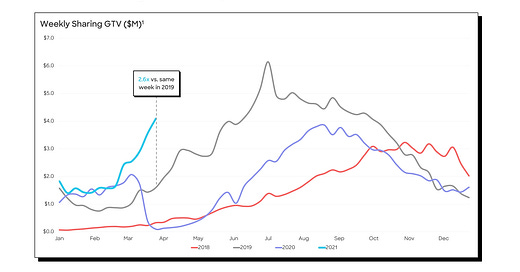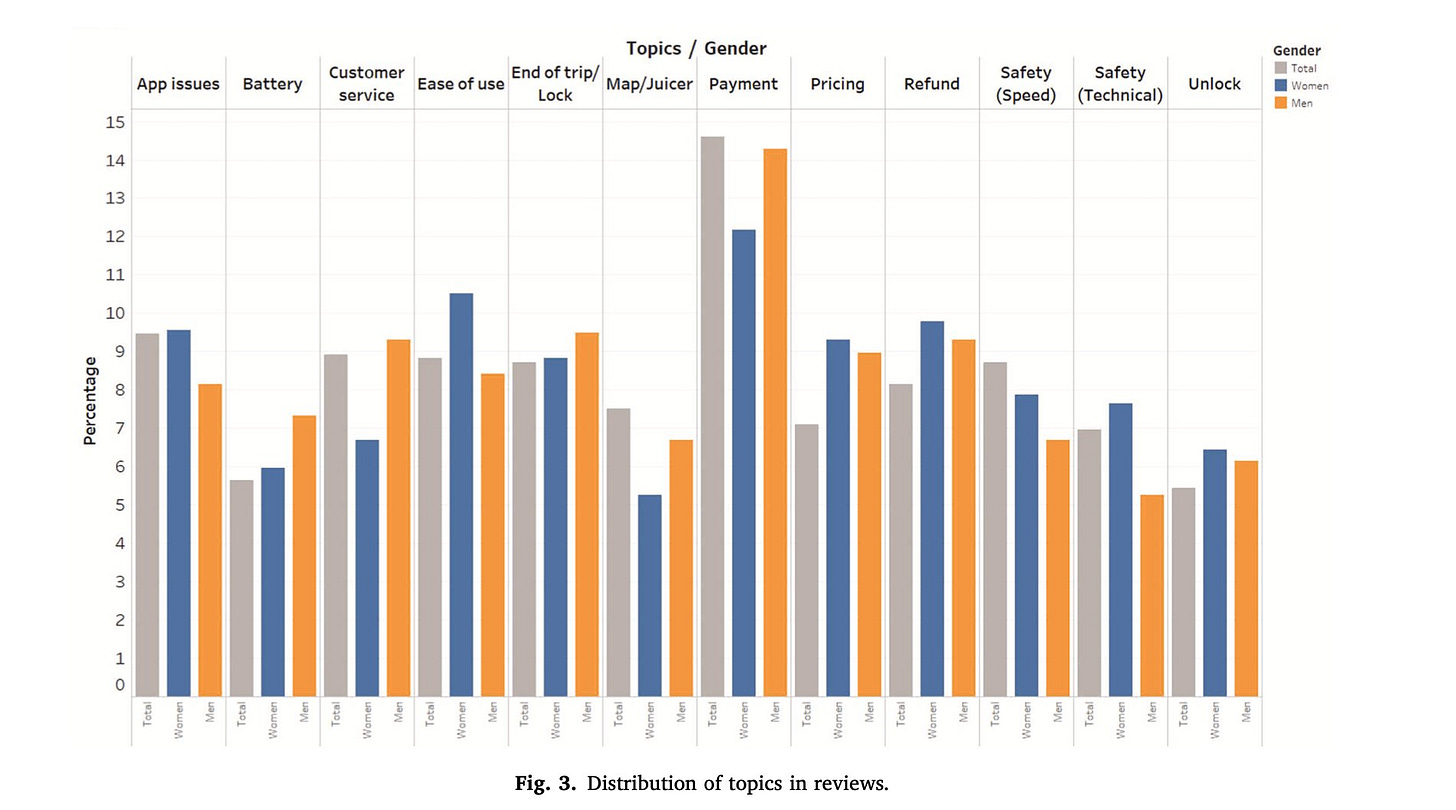🤑 Segway’s Payday
Plus, Gogoro goes after China, Giant rides e-bike upswing, and Bird expects a big bounce back.
Hello and welcome to the Micromobility Newsletter, a weekly missive about mobility, mostly mobility in cities by lightweight electric vehicles. The reason you’re reading this email is that you signed up on our website or came to one of our events.
If you’re not a subscriber and you want to keep getting the latest news and analysis from inside the micromobility movement delivered straight to your inbox every Tuesday, sign up here for free. If you’d like to unsubscribe, just click that link.
Thank you for reading.
What You Need to Know This Week
Micromobility manufacturer Segway-Ninebot is now profitable. The company, which first attracted attention (and derision) in the early 2000s for its two-wheeled, self-balancing personal transporter—before finding a lucrative niche supplying Bird, Lime, as well as individual commuters with electric scooters—is the latest beneficiary of a boom in two-wheeler sales brought on by the pandemic. In 2020, Segway sold an incredible 2.3M vehicles, including mopeds, e-bikes, and more, generating $930M in revenue and a positive EBIT of $11.4M.
It’s official. Tier, Dott, and Lime have scored permits to participate in London’s long-awaited e-scooter pilot. The trio will deploy next month for a full-year trial.
Giant now generates 30% of its revenue with e-bikes.
Here’s the pitch deck that Bird sent to investors ahead of its SPAC announcement. According to this doc, the scooter startup brought in $151M in revenue in 2019 and $95M in 2020, and it expects to do $188M in sales this year. The deck makes clear that e-bikes, retail, and the franchise-style Fleet Manager platform will all be key to Bird’s future.
Bolt launched 15K scooters across nine German cities in a single day this week. The massive deployment shows the Estonian ride-hailer is serious about its goal of becoming the largest scooter player in Europe, a strategy that its micromobility chief laid out on our podcast in late 2020.
Just weeks after announcing plans to build a massive battery-swapping network in India, Taiwanese e-moped startup Gogoro revealed it is entering the Chinese market through partnerships with two major manufacturers, Yadea and DCJ.
Speaking of Gogoro, India’s largest two-wheeler maker, Hero MotoCorp, plans to bring its first EV to market next year, possibly in partnership with the Taiwanese firm.
A new prototype device on Spin scooters will make an angry beeping sound if it detects that the user is riding on the sidewalk. Relying cameras, sensors, and AI from Drover, the system belongs to a new breed of tech solutions designed to nudge riders to follow traffic laws.
Israeli e-scooter manufacturer Inokim intends to IPO this September.
U.S. imports of bike parts surged in March… but retailers say they’re still seriously constrained by lack of inventory.
South Korea, one of the largest markets for micromobility in the world, will now require electric scooter users to have a driver’s license and wear a helmet.
Relatedly, LG has launched wireless charging stations in Bucheon, west of Seoul, through a partnership with electric scooter service Kickgoing.
Italy’s biggest insurer, Generali, has bought a stake in Ridemovi, a shared micromobility service in Southern Europe that formerly belonged to Mobike.
Electric moped maker Niu saw its revenue grow by 135% in Q1, year-over-year. As the global demand for LEVs continues to swell, the Chinese firm expects its gross sales will increase by 40-60% this quarter.
As demand for first- and last-mile mobility increases, the market for micromobility telematics is expected to grow from $957M to $1.3B over the next decade.
A new study of app reviews finds that women tend to be more satisfied with e-scooter services than men, although they make up a smaller percentage of riders. Surprisingly, the most frequent topic mentioned in app reviews is payment, suggesting the scooter industry still has some basic customer-experience issues to solve.
To ease this friction with payments, Joyride is partnering with Apaya to allow micromobility users to rent vehicles using more than 150 local payment alternatives, such as mobile wallets, bank transfers, mobile money, and carrier billing.
Chicago has released new data from its 2020 e-scooter pilot. The good news is that 30% of scooter trips replaced driving or using ride-hail, and injuries resulting in emergency room visits were extremely rare. The bad news is that, out of 10,000 vehicles deployed by Lime, Bird, and Spin, the average utilization rate was just .59 trips per day.
Japan is seeing an uptick in applications for driver’s licenses tied to commuters’ lingering concerns about the safety of riding public transit.
ICYMI: Join us in-person for our annual summit, Micromobility America, on Sept. 23 in San Francisco. Tickets are limited. Grab yours today while our Spring Sale offer lasts.
Jobs to Be Done
Welcome to our jobs board, where every week we post open positions in hopes of connecting our readers with professional opportunities in the burgeoning world of new mobility. Find out who’s hiring below and sign up for the newsletter to view fresh listings every week.
Dance: Technical Hardware Sourcer (Berlin)
Lime: Supply Project Manager (remote) + Sr. Fleet Partner Manager (Warsaw)
Luna: IoT Software Engineer (Dublin)
Zoba: Data Scientist + Customer Facing Engineer (Boston)






